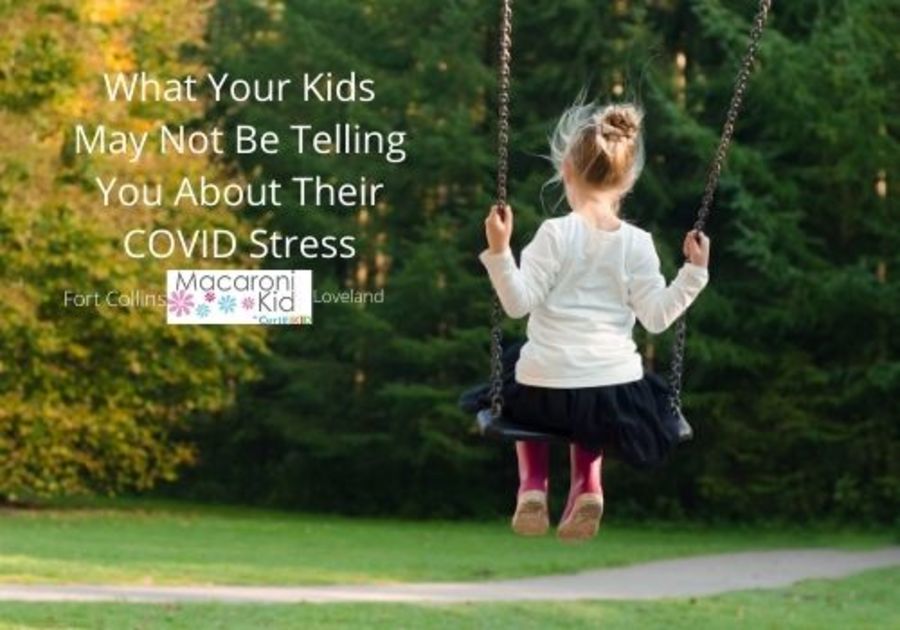The Pandemic has brought about many sudden and somewhat drastic changes that can affect anyone of any age.
Kids, Tweens and Teens may not have learned how to handle all the emotions and pressures that they have now found themselves dealing with every day.
As a parent, you may notice changes in your child and might wonder if the changes are normal or if there is something there where help is needed.
Having negative reactions to current events, school stress, and other common stressors can lead to decreased academic performance, social isolation, and declines in mental health. These are signs your child needs you or someone to help teach them learning and coping skills to help navigate their mental health.
What are the physical and emotional signs and symptoms of stress?
Most likely if your child is having trouble they will exhibit physical, emotional and/or behavioral signs of stress. Pay close attention to a sudden shift in behavior and unusual complaints your child may bring up.
Physical signs of stress in children:
- Headaches
- Upset Stomach
- Chest Pain
- Heart palpitations or increased heart rate
- Insomnia
- Nightmares
- Bedwetting
- Decreased appetite, comfort-eating, or bingeing
- Pretending to be sick to avoid activities
Emotional symptoms of stress in Children:
- Anxiety
- Mood Swings
- Restlessness
- Clinginess
- New or recurring fears
- Increased crying, anger, stubbornness or aggression
- Decreased concentration or motivation
- Emotional overreactions to minor incidents
- Regressing toward comforting behaviors from early childhood (exe: thumb-sucking, nail-biting, sleeping with stuffed animals)
- Social isolation, withdrawal or unwillingness to participate in formerly enjoyed activities
Common Stressors in Children and Teens:
If you have noticed any physical, behavioral or emotional symptoms of stress, consider what may be causing these reactions. These changes can be brought on by the stress of significant life changes whether they are positive or negative. Anything from starting a new grade to family problems or class bullying.
Try to troubleshoot for possible causes. What is new or different? Any changes at school, home, or with friends? Keep in mind all kids are different and react in their own uniquely personal way. Something that may not be stressful for one child, may be traumatic for another. Children of different ages will react differently to different triggers as well.
Stressors for kids of all ages:
- Conflict with friends, bullying, and peer pressure
- Changes in schools
- Struggling in school with curriculum, grades, homework, socialization etc.
- Balancing responsibilities like school and extracurricular activities
- Disappointing their parents
- Parental divorce or separation
- Financial difficulties within the family
- Unsafe or precarious living situation
Possible stressors for children:
- New experiences and places
- Being away from home
- Performing in front of others like school pageants, sports, speeches, recitals
- Getting picked last for sports or any activity
- Perceived danger like kidnapping, fires, burglars, natural disasters, the dark
Possible stressors for preteens and teens:
- Going through puberty and bodily changes
- Poor self-esteem and negative thoughts about themselves
- Fear of the future getting a job, going to college, failure
- Cyberbullying
- Romantic relationships and dating
- Pressure to try things like drugs, alcohol, peer pressure
How you can help to alleviate childhood stress:
- Ensure your child feels safe: Kids can feel insecure going through family changes such as parental separation, precarious living situation, illness or death in a family. Physical security or being unsure if an adult can care for them creates insecurity and a lack of stability and trust. It's important to reassure your child that you will keep them safe and loved. Then take the necessary steps to ensure you uphold your promise or find someone who can help you with this.
- Talk to your child: Ask your child directly how they are feeling and really listen to their answer. Remember to stay calm to avoid making them feel judged or self-conscious. Don't get upset if your child can't or won't open up. Some kids need time and encouragement before they feel comfortable enough to open up. Younger children typically don't have the vocabulary to say that they are stressed but they do know when they are scared, sad, confused or mad. Preteens and Teens may be dismissive about things and themselves and express it in ways saying " I can't do anything right", "No one likes me", "I have no friends". Gently prompt the child to keep talking and try to pinpoint the driving force behind these thoughts and statements.
- Develop healthy coping methods: Most kids are not naturally equipped with the tools needed to lower stress levels. Teaching mindfulness techniques, breathing techniques and exercising can be very beneficial in promoting relaxation. Physical exercise is especially good at combating feelings of stress. Keep balanced meals, time outdoors, and movement scheduled in. Limit your child screen time such as TV, cellphone, and laptops.
- Spend quality time together: Show your child you will always be their pillar of support by spending undistracted dedicated time with your child. Plan activities together and praise them, offer hugs and affection to boost their feelings of self-worth. Create and maintain a family routine like Taco Tuesday, Family Night Friday, Mindfulness Monday. This helps create stability and comfort for your child and the whole family.
- Manage your own stress: Kids are sharp and they pick up on your emotions and your emotional cues and the cues of adults in their lives. If you are having trouble, having negative feelings, stress, anxiety or depression your child will know. Taking care of yourself is as important as taking care of your child. Taking care of yourself isn't selfish, it's another way to take care of your child. If you are in a good place your child will see you are doing well and that will translate to them.
Don't pressure your child into immediately telling you what is wrong. Keep in mind your child may not confide in you if they are scared or anxious. Be patient, loving, and gentle. Allow your child to come to you.
When do you need to seek professional help?
Some kids may still be quite withdrawn and unwilling to share their experiences. If they can't or won't open up and disclose the source of their stress and their symptoms are worsening, it's time to seek professional help. You can start with your family doctor and et recommendations or you can get in touch with a trained therapist who specializes in Child and Adolescent mental care.
More Links to Helpful Resources:
- The National Child Traumatic Stress Network - NCTSN: Parent/Caregiver Guide to Helping Families Cope with the Coronavirus Disease 2019 (COVID-19)
Provides information about infectious disease outbreaks, how to reduce stress and help calm likely anxieties, and what to do to help family members cope
Available in Spanish and Chinese - Substance Abuse And Mental Health Service Administration - SAMHSA: Taking Care of Your Behavioral Health: Tips for Social Distancing, Quarantine, and Isolation During an Infectious Disease Outbreak Focuses on potential emotional reactions and mental health concerns and self-care tips
- Center for Disease Control and Prevention CDC: Stress and Coping: Parents Lists behavior changes to watch for in youth and suggests ways to support them
- NCTSN Trauma and Your Family Defines traumatic stress, how common it is, how it can impact a family and things a family can do to cope with traumatic stress
- Healthy children Mental Health and Teens: Watch for Danger Signs Tips for communication, red flags to watch for, potential mental health issues and when and how to get help
- National Alliance for Grieving Children: About Childhood Grief How to demonstrate understanding and compassion to a grieving child based on research and practice among children's grief support professionals and volunteers
- Boys and Girls Club of America Emotional Health Check In's During COVID-19
 |  |  |  |



